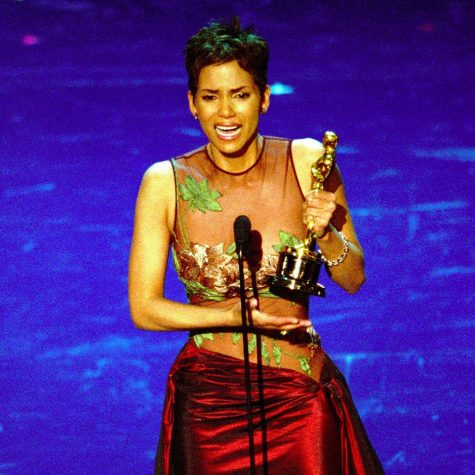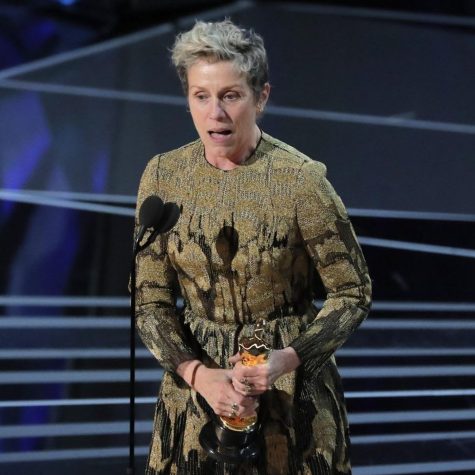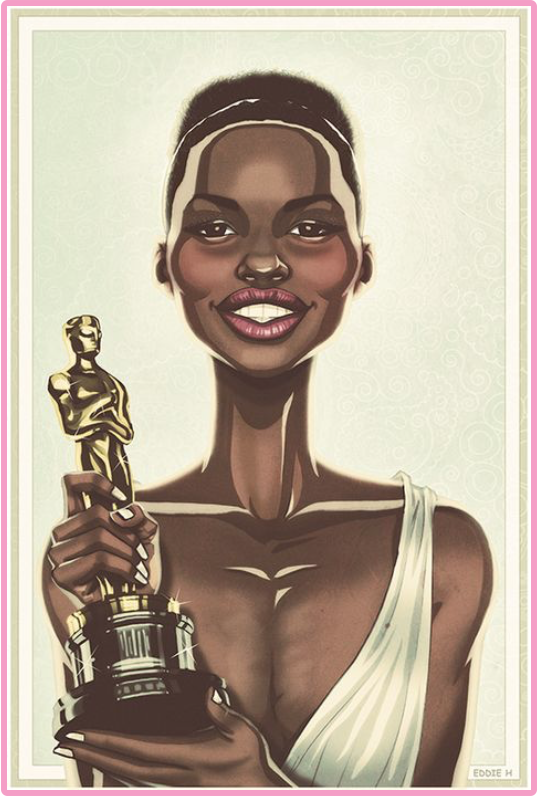Not Enough Women on My Screen: The Lack of Female Representation at the Oscars
March 9, 2020
HOLLYWOOD, CA — I sit, cross-legged, upon the floor of my living room, six years old, with eyes enveloped by the undulating, static light of my television screen. It is 2008, and as the flames of passion within me yearn to be ignited, I quietly watch the Academy Awards… as an aspiring actress.
Excitement fills my being as my eyes dance in the colors of their suits, their dresses, their blazing faces. I feel inspired as they accept their awards for their art, their performances, their human expression.
Despite this excitement and the ignition of a fervent passion within, a small hole burns deep in my chest. One that my six-year-old self failed to fathom. One that over time, I grew to understand.
I simply didn’t see enough women on my screen.
I saw the women in their dresses, I saw the women in the movies, I knew about the women behind the screen, I knew about the stories created by women… yet I didn’t see them receiving recognition.
At seventeen, I still sit, cross-legged, upon the floor of my living room, and the fire continues to scorch inside, burning. To give you an understanding of this gap and disparity, it is important to look at the numbers – the numbers that I have seen and that you have witnessed – in watching the award show that honors cinema to the highest degree.
Although women, fortunately, are represented in the categories of Best Actress in a Leading Role and Best Actress in a Supporting Role, female recognition has been, and is currently, lacking in every other non-gendered category.
In the ninety-two year history of the Academy Awards, only five women have been nominated for Best Director. Of those five, only one has won – being Kathryn Bigelow for The Hurt Locker (2010). In terms of writing, numbers are a bit higher – with eight women having won for Best Adapted Screenplay and twelve women for Best Original Screenplay. However, in the scope of ninety-two years, that is not many.
This year alone, according to research conducted by the Women’s Media Center, only 30% of all non-acting nominations went to women. 30%. In a world that is comprised of 50% of women and 50% of men. In a world where women can share the same brilliant ideas and hold the same passions.
How is this explained? Well, besides the rooted sexism of our global culture, the real culprit proves to be the Academy itself – and its shocking demographics.
In a 2012 study, the Women’s Media Center found that 77% of Oscar voters (in the Academy) were male. Although time has elapsed since this study, a large disparity still exists between men and women in the Academy.
It is also important to note the even more devastating exclusion that women of color have faced at the Oscars, as 94% of Oscar voters only a few years ago were Caucasian.
In the history of the Oscars, only one African American woman has won an Oscar for Best Actress in a Leading Role – being Halle Berry for Monster’s Ball (2002). Eight African American women have won an Oscar for Best Actress in a Supporting Role, and not one black woman has been nominated for Best Director.
Not one woman of Asian, Latin-American, nor Native-American descent has won for Best Actress in a Leading Role. Only three women of Asian-descent and two of Native-American descent have been nominated for this category. Although four Latina women have been nominated for Best Actress, two have won for Best Supporting Actress.
Despite these tragic numbers, there is hope. There is hope because women voice their opinions. There is hope because women will never cease to create or express themselves – even in the face of male-dominated adversity.

Upon winning her oscar, Halle Berry, the only black woman to win for Best Actress in a Leading Role, voiced, “This moment is so much bigger than me…it’s for every nameless, faceless woman of colour that now has a chance because this door tonight has been opened. Thank you. I’m so honoured. I’m so honoured” (2002).
Francis McDormand, 2018’s Best Actress in a Leading Role, concluded her acceptance speech by calling the Academy and the film industry to represent women. She used the term “inclusion rider,” which refers to the contract to hire a diverse workforce.

Our numbers are small, but they are growing. Our voices have not been listened to, but they are starting to be heard. There will be change for women – and they will be seen for their art, their stories, their performances.
I long for the day where my female idols of every color, background, and upbringing are represented. I long for the day where I, as an actress, feel represented. Where I sit in front of the living room screen, or in front of the camera, or at the award show – and I feel powerful, heard, and respected.
Continue the fight for female representation at both the Oscars and in our world.



